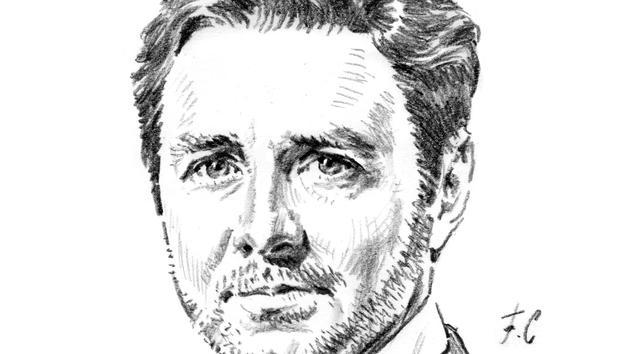Olivier Babeau is president of the Sapiens Institute and professor of management sciences at the University of Bordeaux. He recently published The New Digital Disorder: How Digital Is Exploding Inequalities (Buchet Chastel, 2020).
Visiting Delphi in August was probably not a good idea. Choose the beginning of the afternoon to go up the sacred way even less. The sun transformed the slopes of Mount Parnassus into a furnace. Our guide did not seem to suffer from the heat. He was a real specialist in antiquity who took pains to share his knowledge with the group of tourists I was part of (even if, for us tourists, it's always the others).
So here we are in front of the temple of Apollo where the Greeks came to question the Pythia. I am at the center of the Greek world, surrounded by the nostalgic beauty of these ruins which speak of one of the most fascinating civilizations in the history of humanity. A breathtaking panorama is offered to me. And I see myself taking my laptop to check Twitter.
Listening to the guide with a distracted ear, I know deep down that one thing has been nagging my mind since the morning bus trip: what could I say in 280 characters that would interest my "followers"? No matter the subject. About Athens, about Delphi, about anything, as long as it grabs their attention and garners likes.
By the way, I take a look at the thread of new publications to see if someone has not put a witticism, an eloquent graphic, a hilarious meme. And while I'm at it, I check my mailbox (obviously, no message having the slightest importance, it's the summer break, more sacred in France than was the peplos of Athena in the Erechtheion) . I end with a quick tour of Instagram, for which I have no predilection. The whole will have lasted five minutes, and when I look up my group has already moved away.
Read alsoOlivier Babeau: “Our civilization is sickened by images”

The first stage of remission for the alcoholic is to recognize that he is. I have to face the facts: I have a form of screen addiction. There is now in iPhones a very valuable function that allows you to analyze in detail the time spent on it. I had never really consulted her. The average daily time spent on my laptop is around 5 hours, including 3 hours of social networks. I receive about 100 different notifications every day. I activate my phone more than 150 times a day. And that's not counting the time spent on my computer.
The reader will not judge me too harshly, I hope, if he realizes that he is often in much the same situation. New pathologies are officially listed, like so many digital signs of the times when the plague bacillus no longer wreaks havoc, but has been replaced by more pernicious forms of confiscation in the world. “Selfitie”, the obsessive taking of selfies, is now an official disease among English and Indian psychiatrists. As well as “nomophobia”, or anxiety about being separated from your smartphone, which would affect, according to a study[1], 27% of French people. Perhaps a by-product of athazagoraphobia: the fear of being forgotten by one's peers. As for Fomo (acronym for fear of missing out), it designates the anxiety linked to the fear that we have of missing information or a buzz on the Internet as soon as we are disconnected.
Two well-known phrases appeared on the temple of Apollo: “know thyself” and “nothing too much”. In the century of the omnipresence of screens, it seems that narcissistic contemplation has replaced introspection, and that excessive behavior has replaced moderation.
I plead guilty. Barely quenched, the thirst to consult my thread reappears. A few minutes are enough for the attraction of the black screen to come back to blur my thoughts. Whatever I do, however exciting my occupation, however beautiful the concert I attend or the museum I visit, the desire is there, like a permanent itch.
Read alsoFacebook outage: "The deprivation of social networks can plunge us into a feeling of abandonment"
This dependence is all the more paradoxical in that for several years I have been warning about the dangers of digital technology, that I have published a book and numerous texts on the subject and that I give conferences every week where it is a question in particular of this essential issue that is our relationship to screens. Do as I say...not as I do. Saying is so much easier than doing: knowing that you are being manipulated is one thing, avoiding being manipulated is another. Numerical resistance is easily theorized. Going into practice is a very different exercise.
Digital, like all new technologies, was delivered without instructions. It is the challenge for the next few years to collectively develop the rules for healthy use. It begins with self-discipline for which we have not been prepared. It is such a discipline whose principles I will seek through these "chronicles of digital detoxification". I will share my thoughts and my experiences, my progress and my failures perhaps. These chronicles are the logbook of an essayist and a teacher, but also of a consumer, a citizen and a father. The story of a daily battle to tame the screens which could be useful to many readers, because many of us share more or less the same problems.
Today is the first day of the rest of my digital life.
[1] Big Ben Connected Observatory.
Medical deserts, public services: what assessment of Macron on rurality?
The best phones in 2021 for photos and video
What is the best Oppo smartphone to choose?
Good Plan: the recap of 4G packages on sale